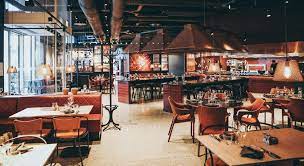There are several factors to consider when starting a restaurant business. Some of these factors include demographics, costs, legal structure, and marketing. Considering these points can help you determine the best restaurant concept to start. However, before you begin writing your plan, make sure to spend some time learning about the restaurant industry. You can learn more from the links below. Restaurant business plans are crucial for the success of your restaurant. Having one of these plans can help you gain more investors and ensure the success of your restaurant.
Demographics
To become successful in the restaurant business, it’s important to understand the demographics of your area. The Bureau of Labor Statistics tracks restaurant owners in the U.S. and provides a detailed demographic profile of the industry. These data can help you create a more focused menu and target specific demographic groups. Below, you’ll find some demographics of the restaurant industry by state. You can use this information to tailor your menu to attract your customers.
First, it’s important to understand your target audience. While you can’t know who your exact customer will be, you can get some general information about them by talking to other restaurant owners. You can ask them about their needs, what they typically eat, and their age ranges. By asking these people about their demographics, you’ll be able to create a more specialized product geared toward their needs.
Costs
Before you can even open your doors, you need to determine the costs of running a restaurant. There are two basic types of costs – one-time and recurring. One-time costs are those expenses you need to spend money on only once. These expenses include kitchen equipment, linens and tableware. However, recurring costs may not be as obvious as one-time ones. The costs of operating a restaurant can be staggering.
Lease/mortgage payments are the most obvious ongoing cost of running a restaurant. These payments can range from $2,000 per month to $12,000 per month, depending on location and deal negotiation. You can also pay property taxes, which can be between 20% and 30% of sales. Business licenses are also costly. These fees include liquor permits, city licensing fees, and compliance permits for health and safety. These permits are generally required for a certain number of years. The length of a lease can vary from one year to a few years. Depending on your negotiation skills, you can negotiate for a percentage increase every month.
Legal structure options
There are a few legal structure options for restaurant businesses. In general, you should operate your restaurant business as a partnership or sole proprietorship. Either option provides limited liability protection, but you should be mindful of personal liability concerns. If you intend to hire employees, there is a risk that your personal assets and those of your business partners could be at risk. For this reason, you should always seek a legal structure that protects your personal assets.
You can incorporate your restaurant as a corporation. The articles of incorporation should contain certain information about the business, such as its name, principal place of business, registered agent, number of authorized shares, and stock classes. The articles of incorporation should also contain the rules and procedures for running a restaurant. The articles should also specify who owns what percentage of the business and what percentage of the profits should go to each shareholder. You should also have an operating agreement to spell out how profits and losses will be allocated between shareholders.
Marketing
If you’re a restaurant owner, you’ve probably heard about the importance of SEO and local search engine optimization. Local search engine optimization is crucial for restaurants and will improve your visibility and improve the chances of getting repeat orders. Using a professional and relevant website with content that reaches customers in your area is essential to your online marketing campaign. Also, it’s vital to integrate social media into your marketing strategy and to claim your business page on all local directories.
The right marketing strategy will help you reach more customers and increase the average check size. A marketing plan will help you reach your business goals by increasing your brand awareness, increasing overall sales, and engaging with your target customer base. A solid marketing plan will also help you make the most of your marketing budget. You’ll want to set clear objectives for each marketing campaign to ensure that you spend your money wisely. Using marketing objectives will also help you decide the exact amount you’ll spend on the campaign.
Customer service
If you want to make your restaurant business a success, then you must focus on good customer service. This includes providing simple courtesies, anticipating problems, and responding to requests as quickly as possible. There are simple ways to improve customer service, but the most important part is the ability to respond. Even a small change in your customer service standards can make a big difference for your business. Listed below are some tips for providing excellent customer service.
A friendly tone is important, especially when a customer is angry. It is also important to listen to the customer and offer solutions as quickly as possible. A deep breath can calm your nerves and make the customer feel heard. If the customer does not like a product, you can offer a freebie or a refund to make up for it. This will help your customer feel that you care about their experience and want to ensure that they are satisfied with the products and service at your restaurant.

